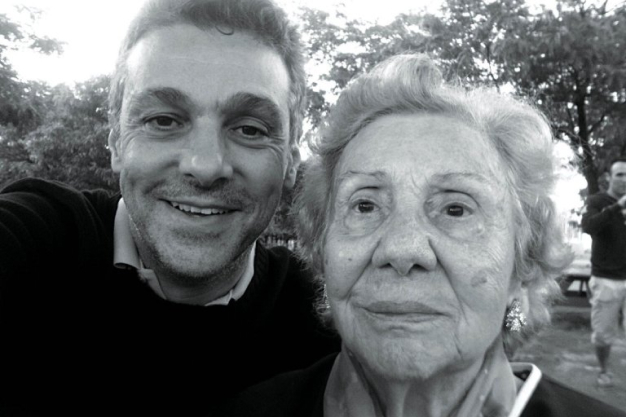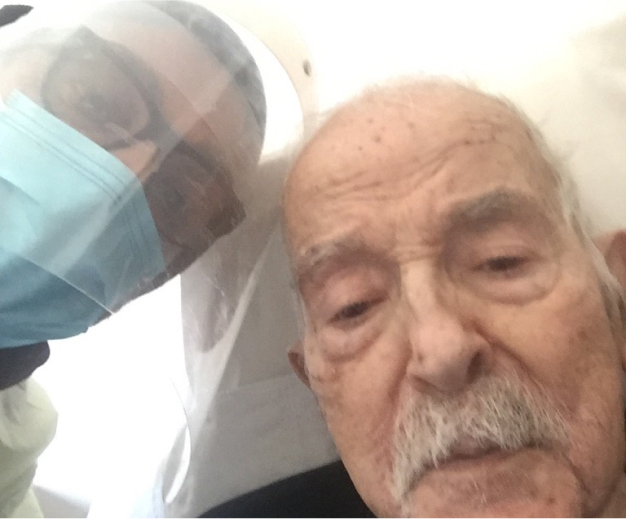
uCarenet is a HealthTech social enterprise helping keep seniors and vulnerable patients at home. uCarenet achieves its mission by developing technology solutions that close gaps in the healthcare journey of seniors from companionship and personal care, to wellness support, to home health care, and to end-of-life palliative care. Current uCarenet e-health solutions directly support seniors, their family members, home-care providers, and healthcare practitioners — coming together to help seniors age in their own home while also helping to solve one of healthcare’s most pressing problems: reducing hospital visits and stays.
We're founded on the belief that ageing in one's home leads to higher wellness. We want parents to live longer, safer, and comfortably in their own home. We believe that home is where the heart is, and that staying connected with family and community makes us stronger, healthier and happier. We want them to thrive and be safe. A connected community redefining how home care is delivered.
Product Portfolio

uCarenet free booking platform
direct access to on-demand quality professional caregivers
Homecare marketplace that connects families directly to independent care providers in the community, while eliminating agency costs.

uCarenet+ Solution For Families
Improved collaboration and health data at your fingertips
Tools and resources to personalize and remotely monitor a home care plan. Data to eliminate the unknown, to reduce the surprises, and to monitor longitudinal wellness data to prevent the next health crisis.

uCarenet+ Solution For Caregivers
Empowering caregivers earn more and deliver better care
Small business tools to manage, administer, and differentiate their homecare business.

AI Based translation
better Care communication
Healthcare translator to 17 languages and an AI based real-time conversational voice translator available in 15 languages.

Virtual Palliative Care
intervention before crisis points
Symptom reporting, health tracking, and medical intervention system for palliative care patients.

Why we created uCarenet
uCarenet was born in 2015 out of a personal experience. An experience that left uCarenet CEO and co-founder Nectari Charitakis committed to create a better way for families to deal with ageing. Prior to 2015 Nectari was a technology executive who had to travel and live in many parts of the world, away from his parents. Being an only child Nectari was quickly got exposed to the complexity of navigating the healthcare system in a search for services to meet his ageing parent's care needs. It was also very clear to him at the moment that there is no mechanism for him to help them from afar.
Back in Canada full time and assisting his parents Nectari realized that his challenge was not a unique one. Many Canadian families are impacted by the same problems, especially regarding the lack of reliable and accountable homecare services. This problem not only impact families but the entire healthcare system as a whole. When people can't age properly in their own home, they are constantly readmitted to hospitals, causing a domino effect that impact the entire system and all Canadians, from wait times to availability of resources.
uCarenet was created to provide families with the tools to help ageing and vulnerable members stay home. It enables families to care for their loved ones even from afar keeping everyone Always connected. Always informed.

Made with love, for Mom
Our co-founder Nectari created uCareLINGO out of his own personal experience in navigating his ailing mother’s care needs. In everyday life, Nectari’s mother had spoken both English and French, yet as her Alzheimer’s disease advanced, she reverted to speaking Greek, the language of her childhood. When Nectari’s mother had to enter a long-term care facility, he wanted her to be able to communicate with her caregivers in his absence.
With no Greek speaking healthcare workers at her care facility, communication was difficult if not impossible when she was without her family.
Nectari’s solution was to translate words onto sticky notes and post them on the wall to assist the caregivers. This wall of sticky notes was ultimately transformed into a printed poster and translated into 17 languages, and the uCareLINGO app was developed to include real time audio translation. Now, caregivers and non-English speaking patients can easily communicate, and seniors who previously felt vulnerable and isolated can rest easy, knowing their needs will be understood.
Remembering Dad, lost to Covid-19 in a long-term care home
In the spring of 2020, in Montréal, Nectari had to deal with the tragedy of losing his beloved father to COVID-19. With his father in a long-term care facility, the rampant infections and subsequent lockdowns made it difficult for Nectari to see his father in his final hours. With his passing, Nectari’s father became a statistic, as more than 80% of all people succumbing to the virus were those in hospital or long term care. Nectari shares this heartbreak with so many other families who have experienced the loss of a family member in hospital or long-term care facilities. This heartbreak has propelled Nick to work faster within his industry to create helpful tools for the elderly and their caregivers, making it easier for aging seniors to remain in their own homes and avoid the risks associated with entering long term care.




